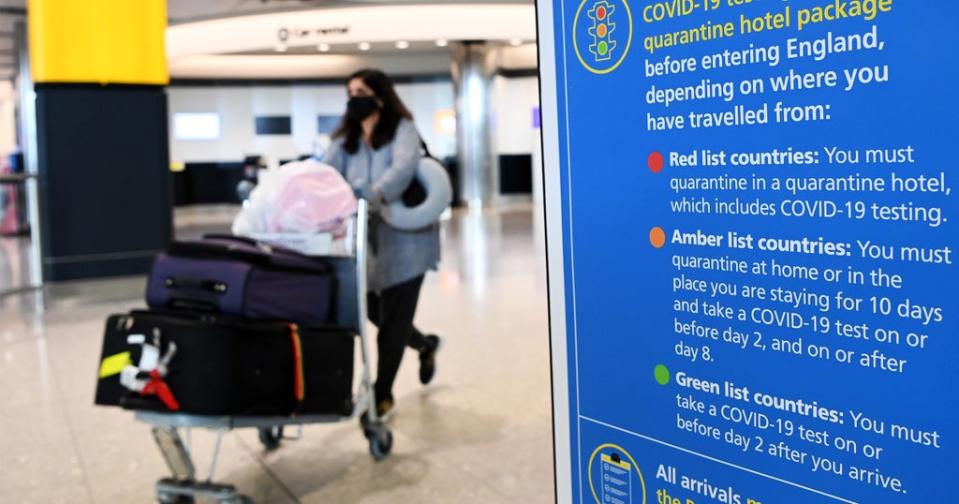UK updates vaccine policy - but those jabbed in India will still be forced to quarantine

The UK, which has updated its vaccine policy for travellers reaching the country, still has mandatory quarantine rules for those who get inoculated in India.
The UK’s new vaccine policy has now included the India-manufactured vaccine Covishield in its list of recognised vaccines, amid allegations of discrimination.
However, rules mandating a 10-day quarantine period for those who travel to the UK after getting vaccinated in India have remained in place. The reasoning given by the UK is that there are issues with the certification process in India.
The new advisory pointed out that individuals getting vaccinated under “approved vaccination programme in the UK, Europe, USA or UK vaccine programme overseas (sic)” would be considered as fully vaccinated.
“Formulations of the 4 listed vaccines, such as AstraZeneca Covishield, AstraZeneca Vaxzevria and Moderna Takeda, qualify as approved vaccines,” the new advisory said.
It also mentions a list of countries from where “a full course” of vaccines from a “relevant public health body” would qualify an individual to be fully vaccinated. India was not mentioned in the list of these countries.
The acceptance of Covishield as an eligible vaccine has, thus, raised questions in India on why those who have been administered these jabs still would not be considered fully vaccinated.
News agency Press Trust of India quoted a British High Commission spokesperson in India as saying that they were in talks with the Indian government over the certification of vaccines.
“We are engaging with the Government of India to explore how we could expand the UK recognition of vaccine certification to people vaccinated by a relevant public health body in India,” the official was quoted as saying.
India had earlier warned the UK of “reciprocal measures” if it did not address the country’s concerns related to its new travel guidelines and had described the new policy as “discriminatory”.
“We understand that this is being used under the national health system, and, therefore, non-recognition of Covishield is a discriminatory policy and does impact those of our citizens travelling to the UK,” Harsh Vardhan Shringla, India’s foreign secretary, said at a media briefing.
The issue was also raised by India’s external affairs minister at a meeting with his UK counterpart in New York, on the sidelines of the UN General Assembly in the city.
The controversy over the guidelines had risen earlier when the UK said it had reviewed its international travel norms, effective from 4 October.
The guidelines said those who were inoculated in India, along with UAE, Jordan Russia, African and South American countries among others, would be considered “unvaccinated”.
This sparked outrage in India and widespread condemnation of the new policy, especially because Covishield is a locally manufactured version of the Oxford-AstraZeneca vaccine. The other vaccine being used in the country is Covaxin, which has been indigenously manufactured.
Covishield was not included in the list of vaccines acknowledged by the UK. The revised rules do not include Covaxin, which is also yet to be approved by the World Health Organisation.
Covishield, produced by the Serum Institute of India in partnership with Oxford-AstraZeneca, is also exported to other countries.
Following the confusion, the UK government updated its travel advisory for Covid-19 vaccination certificates and included Covishield in the list.
Read More
What are the new travel changes and how will rules work?
Travel industry relief mixed with fury after government eases rules

 Yahoo News
Yahoo News 